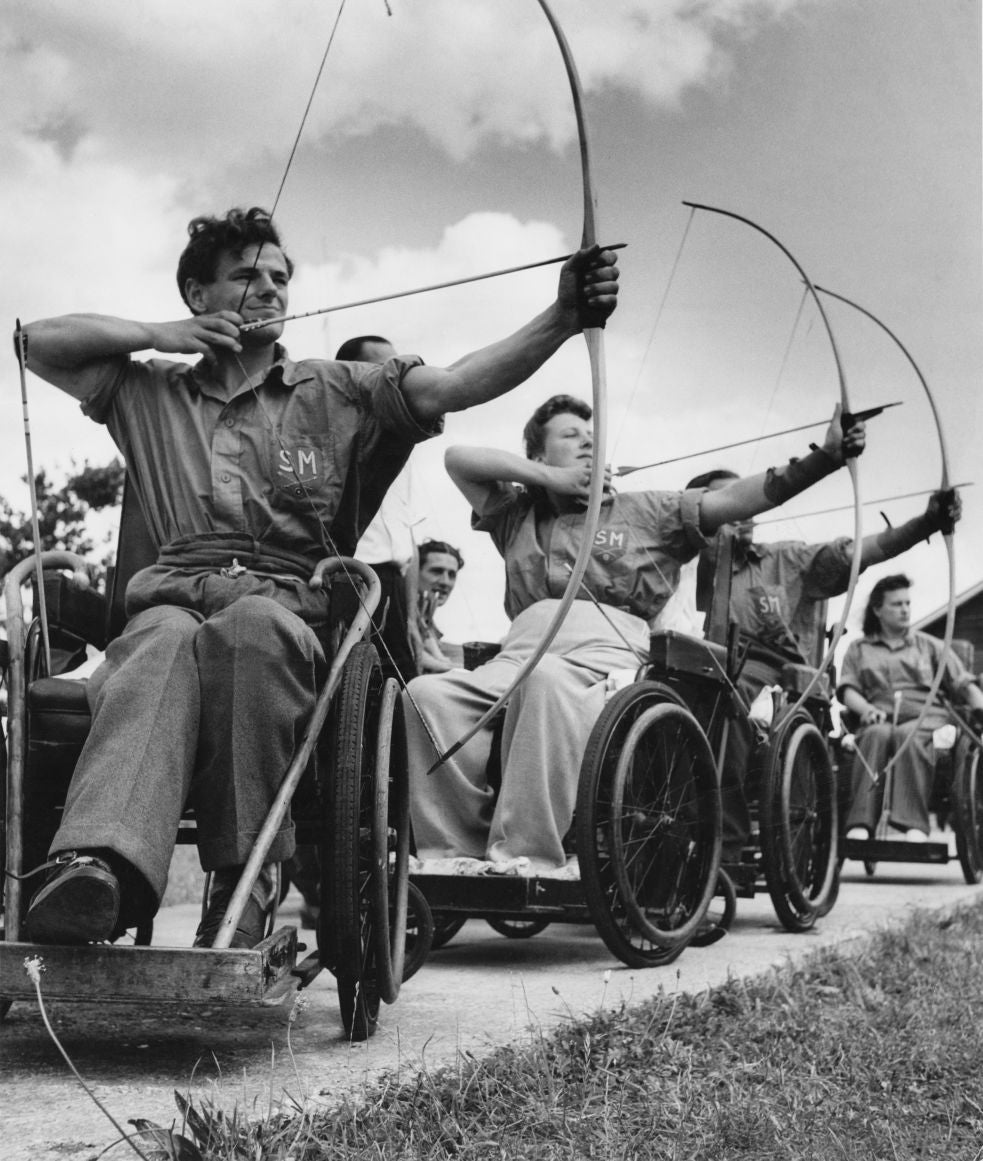Time to embrace a new team of heroes and rethink our attitudes to disability

Your support helps us to tell the story
From reproductive rights to climate change to Big Tech, The Independent is on the ground when the story is developing. Whether it's investigating the financials of Elon Musk's pro-Trump PAC or producing our latest documentary, 'The A Word', which shines a light on the American women fighting for reproductive rights, we know how important it is to parse out the facts from the messaging.
At such a critical moment in US history, we need reporters on the ground. Your donation allows us to keep sending journalists to speak to both sides of the story.
The Independent is trusted by Americans across the entire political spectrum. And unlike many other quality news outlets, we choose not to lock Americans out of our reporting and analysis with paywalls. We believe quality journalism should be available to everyone, paid for by those who can afford it.
Your support makes all the difference.After a brief dose of reality, it all starts again on Wednesday night. The torch, the ceremony, the fans, the winners and losers and the overnight Team GB heroes.
After the euphoria of the Olympics it’s no surprise that the Paralympics is already the most successful ever in terms of ticket sales, with a sell-out looking ever more likely. Channel 4 must be hopeful of record viewing figures. Team GB is expecting another big medal haul. For a sports-mad country that has learnt to love dressage and Greco-Roman wrestling, it’s another chance to get that Games feelgood factor.
But the Paralympics means more than that. It represents a once-in-a-lifetime opportunity to get the country reconsidering disability. Disabled people have been telling Scope that attitudes towards them have been getting worse recently. More than two-thirds say they have experienced name-calling, hostility or aggression.
Almost half feel things have got worse in the last year. When we ask them why they think this is, they keep coming back to the issue of benefits. There is a narrative out there that many of those claiming disability benefits are faking it.
People shout “scrounger” at disabled people in the street. A man whose impairment means he can barely stand told us his neighbours shopped him to a benefits fraud hotline.
This raises serious questions for the Government, which has put a tiny number of people claiming benefits they’re not entitled to at the heart of the welfare reform agenda (0.5 per cent of Disability Living Allowances are claimed fraudulently). The need to weed out “scroungers” runs through their rhetoric and is the basis for the new assessments brought in. When we ask disabled people what would make a difference, unsurprisingly they call for greater visibility and understanding of what their lives are like.
The Paralympics are a wonderful opportunity to tell a different story about disability. Not one about plucky disabled athletes that have overcome adversity to compete in the Games where it’s the taking part that counts. That patronising stereotype does us about as much good as stories about sky-diving benefits claimants.
No, this is a chance to tell a story about all disabled people. Some of whom are elite athletes, some of whom are pretty average athletes (and we shouldn’t be afraid to say so) and many of whom are not athletes at all. Hopefully the Games will open up many more opportunities for disabled kids to get involved in sport. But for those of us who don’t have a sporting bone in our body, it will hopefully send a broader message about the ups and downs of disabled people’s lives – not just as athletes, but as spectators, commentators, volunteers or simply curious passers-by.
Disabled people are grappling with a society which has come a long way since the first Paralympics in 1948. But it’s one where it remains a gamble if a bus will stop for you. Disabled people rely on a complex network of local and national support to live independently. That’s being chipped away. As the BBC’s Peter White said recently: “It’s austerity Britain and we’re the fall guys.”
The Olympics have shown us how to find the drama and humanity in sports we might never have heard of. That’s the perfect preparation for the Paralympics, when we will hopefully embrace a host of new sports and new heroes, but also perhaps a new way of thinking about disability.
Join our commenting forum
Join thought-provoking conversations, follow other Independent readers and see their replies
Comments